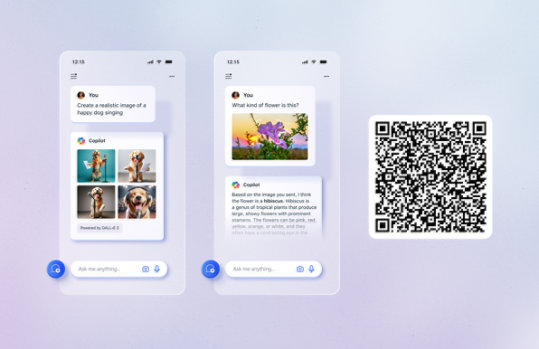Unlock your potential with Microsoft Copilot
Get things done faster and unleash your creativity with the power of AI anywhere you go.

Microsoft Team Explorer Everywhere 2015 (Out-of-date versions 14.0.2-14.0.3 for legacy systems)
For the newest version of Team Explorer Everywhere, please visit https://github.com/Microsoft/team-explorer-everywhere/releases. Team Explorer Everywhere includes the Eclipse plug-in and the cross-platform, command-line client for Visual Studio Team Foundation Server 2010, 2012, 2013, 2015 and Visual Studio Team Services.
Important! Selecting a language below will dynamically change the complete page content to that language.
Version:
2015
Date Published:
8/1/2016
File Name:
TEE-CLC-14.0.3.zip
TFSEclipsePlugin-UpdateSiteArchive-14.0.3.zip
TFS-SDK-14.0.3.zip
TEE-CLC-14.0.2.zip
TFSEclipsePlugin-UpdateSiteArchive-14.0.2.zip
TFS-SDK-14.0.2.zip
File Size:
18.2 MB
24.0 MB
24.3 MB
18.0 MB
23.8 MB
24.2 MB
For the newest version of Team Explorer Everywhere, please visit https://github.com/Microsoft/team-explorer-everywhere/releases. Team Explorer Everywhere includes the Eclipse plug-in and the cross-platform, command-line client for Visual Studio Team Foundation Server 2010, 2012, 2013, 2015 and Visual Studio Team Services.Supported Operating Systems
Apple Mac OS X, HP-UX, Linux, Solaris, Windows 10, Windows 7, Windows 8, Windows 8.1, Windows Server 2008 R2, Windows Server 2012, Windows Server 2012 R2, Windows Vista
- Windows 10 (x86, x64)
- Windows 8.1 (x86, x64)
- Windows 8 (x86, x64)
- Windows 7 (x86, x64)
- Windows Vista (x86, x64)
- Windows Server 2008 R2 (x86, x64)
- Windows Server 2012 (x86, x64)
- Windows Server 2012 R2 (x86, x64)
- Linux with GLIBC 2.3+ (x86, x86_64, PowerPC)
- Mac OS X 10.8+ (Intel only)
- Solaris 8 to 11 (SPARC,x64)
- AIX 5.2 to 7.1(32 and 64 bit)
- HP-UX 11i v1 to v3 (PA-RISC, Itanium)
- IDEs that are based on Eclipse 3.5 to 4.5 on Windows, Linux, Mac OS X, Solaris, AIX, or HP-UX.
- Oracle Java™ 1.6+ or IBM Java™ 1.6+ on Microsoft Windows
- Apple Java™ 1.6+ on Mac OS X
- Oracle Java™ 1.6+ on Linux or Solaris
- IBM Java™ 1.6+ on Linux or AIX
- HP Java™ 1.6+ on HP-UX
- Visual Studio Team Services
- Visual Studio Team Foundation Server 2015
- Visual Studio Team Foundation Server 2013
- Visual Studio Team Foundation Server 2012
- Visual Studio Team Foundation Server 2010
- Installing the Team Foundation Server Plug-in For Eclipse
You must install the plug-in before you can use it in your development processes. You can install into Eclipse directly from the update site, or you can install from the Eclipse Update Site Archive.
To install from the Eclipse update site:- Open Eclipse.
- On the Help menu, choose Install New Software.
- The Install dialog box appears.
- Choose the Add button.
- The Add Repository dialog box appears.
- For the name, enter "TFS plug-in for Eclipse"
- Specify the location of the update site: http://dl.microsoft.com/eclipse/tfs
- Choose the OK button.
- In the list of features in the Install dialog box, select the check box that corresponds to the Team Foundation Server Plug-in for Eclipse. If you don't see this option, use the pull-down menu for Work with and find the update site URL you just entered in the list and select it, then select the check box beside the plug-in mentioned above.
- Choose the Next button two times.
- If you agree to the Microsoft Software License Terms, accept them and then choose the Finish button.
- Restart Eclipse when you are prompted.
To install the plug-in from the update site archive:- Use the link on this page to download TFSEclipsePlugin-UpdateSiteArchive-14.0.3.zip.
- Open Eclipse.
- On the Help menu, choose Install New Software.
- The Install dialog box appears.
- Choose the Add button.
- The Add Repository dialog box appears.
- For the name, enter "Local TFS plug-in for Eclipse update archive".
- Choose the Archive button.
- The Repository archive dialog box appears.
- Find and select the downloaded "TFSEclipsePlugin-UpdateSiteArchive-14.0.3.zip" file as the File name.
- Choose the Open button.
- Choose the OK button.
- In the list of features in the Install dialog box, select the check box that corresponds to the Team Foundation Server Plug-in for Eclipse.
- Choose the Next button two times.
- If you agree to the Microsoft Software License Terms, accept them and then choose the Finish button.
- Restart Eclipse when you are prompted.
Installing the Cross-platform Command-line Client for Team Foundation Server
You can perform many version-control operations from the cross-platform command-line client for Team Foundation Server. Before you can use this client, you must install it and configure your shell or system path to include the installation folder.
To install the Cross-Platform Command-Line Client for Team Foundation Server- Use the link on this page to download TEE-CLC-14.0.3.zip.
- Unzip the archive (TEE-CLC-14.0.3.zip file) that contains the client.
- Configure your shell or system path to include the folder to which you unzipped the archive.
- To verify that the client is working, at a command prompt, type tf, and then press the ENTER key.
For information about any of the commands, you can type tf help Command, where Command is the name of the command for which you want information. For example, you could type tf help checkin. You can also type tf command /help or tf command -help to obtain help.
